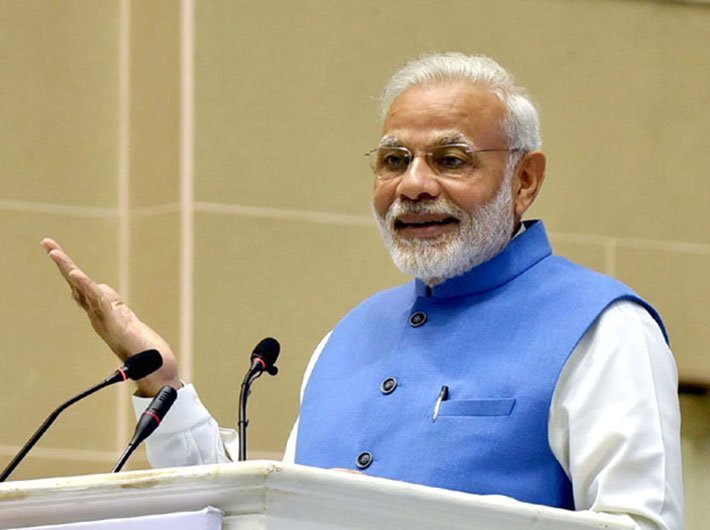A Central Consumer Protection Authority with executive powers will be constituted for quick remedial action, said the prime minister
After GST, dozens of different types of indirect taxes in the country have been abolished. Many hidden taxes have also gone away. Now, the consumer knows how much tax he has paid to the state government and how much to the central government. The queues of the trucks on the borders now no longer exist,” said prime minister Narendra Modi on Thursday.
He said that “with GST, a new business culture is developing and in the long term consumers will be the biggest beneficiaries. It is a transparent system in which no one can hurt the interests of the Consumers. Increased competition due to the GST will lead to moderation in prices. It will directly benefit poor and middle class consumers”.
We are in process of enacting a new Consumer Protection Act keeping in view the business practices and requirements of the country, he added during his address at an international conference on consumer protection in Delhi.
“The proposed Act lays great emphasis on consumer empowerment. Rules are being simplified to ensure that Consumer grievances are redressed in a time-bound manner and at least possible cost. Stringent provisions are proposed against misleading advertisements. A Central Consumer Protection Authority with executive powers will be constituted for quick remedial action,” said Modi.
He said: “We have enacted the Real Estate Regulatory Act for the protection of home buyers. Earlier, consumers waited for years to get the possession of their homes as they would fall prey to unscrupulous builders. There used to be ambiguity regarding the area of the flat. Now after RERA, only registered developers can seek bookings only after getting all the required permissions. Moreover, booking amount has been fixed only at 10 percent.”
Earlier, the builders used to divert the money received for bookings to other projects. Now government has made a stringent provision that 70 per cent of the payment received from buyers will be kept in an "Escrow" account and this amount will be spent on that project only.
“Similarly, the Bureau of Indian Standard Act has also been enacted. Now any commodity or service related to public or consumer interest can be brought under compulsory certification. This Act also has provisions to order recall of substandard products from the market and for compensation in case of loss or damages incurred by the consumer.
Besides strengthening the interests of the consumers through the law, it is also necessary that the grievances of the people are promptly addressed. In the last three years, our government has created a new eco-system for grievance redressal by making efficient use of technology.
The prime minister went on to say that the scope of consumer protection is very broad. “Development of any country and consumer protection are complementary. Good governance has an important role in taking the benefits of development to every citizen.”
Ensuring delivery of rights and services to the deprived by the government is also a way of protecting interests of the consumers. Ujjwala Yojna for Clean Energy, Swacch Bharat Abhiyaan for health and hygiene, Jan-Dhan Yojna for Financial Inclusion reflect this spirit. The government is also working towards the goal that every citizen of the country owns a house by 2022.
Recently, a scheme has also been launched to provide electricity connection to every household of the country. All these efforts are for providing Basic Lifeline support to people and to make their lives more comfortable.
He added that interests of consumers are not protected by merely giving them rights. In India we are also working to formulate schemes which help consumers save money. The poor and middle class in the country is benefitted most from these schemes.
Modi said that by strengthening the Public Distribution System through technology, it is also being ensured that the poor, who have the right to affordable food grains, get their due.
